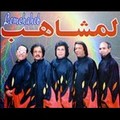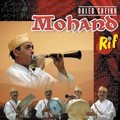It is one of the greatest cities of Morocco. Marrakech has a story to tell, from the Almoravids who laid its foundation stones in 1070 to Almohads, Saadis and the Alaouite dynasty. But before becoming the city that it is today, with its ancient medina, mosques and narrow souks, Marrakech was a deserted land that attracted the attention of the first Amoravid sultans.
To historians, the city of Marrakech was built to serve as the capital of the imperial Berber Muslim dynasty, Almoravid. According to the «Encyclopedia of African History» (Routledge, 2013, volume 3), by Kevin Shillington, «Marrakech supplanted an earlier city, Aghmat (founded in 704), located some distance away at the mouth of the Ourika valley in the High Atlas».

The encyclopedia recalls that Marrakech, quickly, flourished and «grew» as a city, while «Aghmat withered and so Fes and Sijelmassa, the greatest cities of Morocco».
Mur Akush... the land of God
The significant role Marrakech played as an imperial city in Morocco and as a trade hub for centuries pushed historians and most precisely etymologists to study the origins of its name. Why was it called Marrakech and not something else?
Researchers were keen to know the meaning of the city’s appellation and a first version of the story was born. According to the book of Daniel Don Nanjira, «African Foreign Policy and Diplomacy from And Diplomacy from Antiquity to the 21st Century» (ABC-CLIO, 2010), «etymologists state that [the city’s name] is most likely derived from two Berber words».
The writer indicates that Marrakech is a one word version of «amur, (ta) murt (feminine), meaning land or sanctuary, and akuc (akush), meaning God».
«Thus, mur akush means land of God», Don Nanjira stresses, explaining that «it does not mean land of Allah or sanctuary of Allah», but land of akush. The same book indicates that «Morocco in medieval Latin is Morroch, which comes from the Berber language», referring to the fame the name of the city reached during that period.

Another book, namely «The Muslim Discovery of America» (BoD – Books on Demand, 2013), refers to a similar account. The latter, written by Frederick William Dame, revealed that «Morocco is the Latinized name for the medieval Latin ‘Moroch’ which referred to the name of the former Almoravid and Almohad capital Marrakech». The book also agrees that Marrakech is «derived from the Berber word ‘Mur-Akush’, meaning ‘land of God».
A fortified city
But this was not the only account that tries to explain the meaning of Marrakech. In his book «Al Modono Wal Athar Al Isslamia Fi Al Alam» (Cities and Islamic monuments in the world), Ahmed Khalidi writes that the word Marrakech was used to describe the fortified city. To him, Marrakech meant «a stone wall», «the city of stones», or «the fortified base».
«The land where the city was built was located between two Masmouda tribes, namely Ourika and Ait Illan who competed to host the new capital and wanted it to be built on their land», he further explained.
«The meaning of the name provided by the Masmouda tribes would have been ‘go quickly’ because the area was not safe and travelers were advised to quickly pass by the city», reports Gaston Deverdun in his book «Marrakech, des origines à 1912» (Techniques nord-africaines, 1959).

The same story was reported by «Kitab al-Istiqsa li-Akhbar duwwal al-Maghrib al-Aqsa», a book by Ahmad ibn Khalid an-Nasiri.
The meaning of the word Marrakech is still debatable but the historical significance the city's walls carry is a fact that has been attracting the attention of tourists, historians and even artists for years.





 chargement...
chargement...












